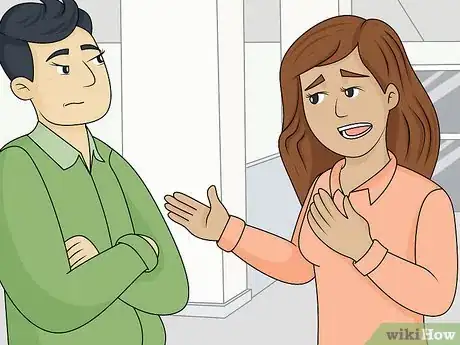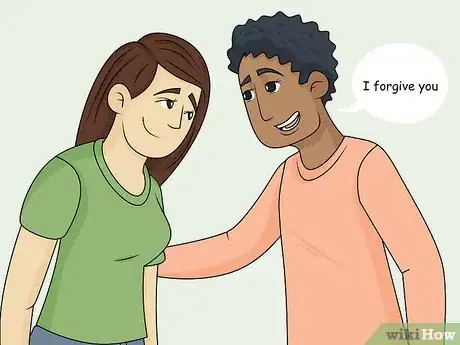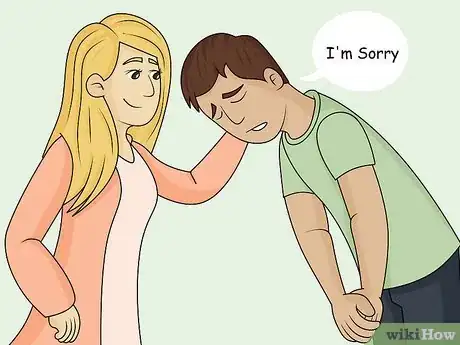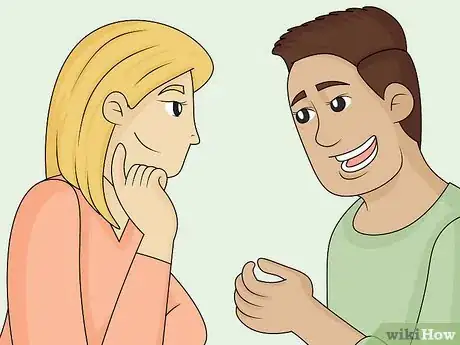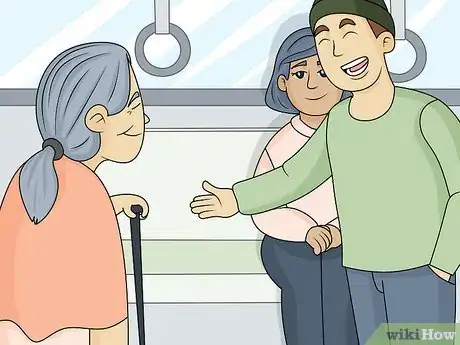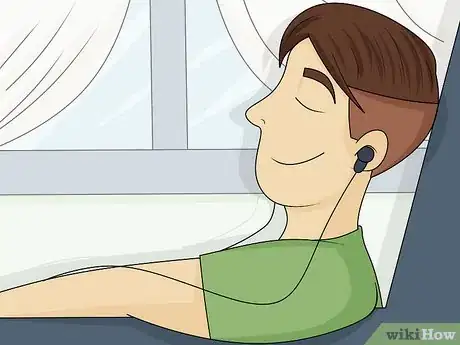This article was co-authored by Tami Claytor and by wikiHow staff writer, Hannah Madden. Tami Claytor is an Etiquette Coach, Image Consultant, and the Owner of Always Appropriate Image and Etiquette Consulting in New York, New York. With over 20 years of experience, Tami specializes in teaching etiquette classes to individuals, students, companies, and community organizations. Tami has spent decades studying cultures through her extensive travels across five continents and has created cultural diversity workshops to promote social justice and cross-cultural awareness. She holds a BA in Economics with a concentration in International Relations from Clark University. Tami studied at the Ophelia DeVore School of Charm and the Fashion Institute of Technology, where she earned her Image Consultant Certification.
There are 12 references cited in this article, which can be found at the bottom of the page.
This article has been viewed 10,125 times.
You probably have someone in your life who’s naturally nice to everyone. If that person used to be you, don’t worry! There are a few easy ways you can become a nice person again and spread positivity throughout your life. Keep reading to learn how you can be kind and friendly to everyone around you.
Steps
Give yourself compliments.
-
It might sound silly, but compliments can really boost your mood. When you wake up in the morning, try to think of something to give yourself a compliment about: maybe you got a new haircut, maybe you finished a tough project at work, or maybe you made yourself a great cup of coffee. Whatever it is, starting your day off with a compliment can really put you in the right frame of mind for the rest of the day.[1] X Research source
- For instance, you might think, “Good job on finishing up that project yesterday. It was stressful, but you made the deadline!”
- Or, “This new haircut really brings out my eyes.”
Take responsibility for your actions.
-
Don’t blame others when things don’t go right. It can feel easy to point the finger at your coworkers, your family, or even the universe when things don’t line up. Try to remember that you’re in control of your own life, and only you can change what happens around you.[2] X Trustworthy Source Harvard Business Review Online and print journal covering topics related to business management practices Go to source
- Of course, you can’t always control what happens to you, but you can always control how you react to it.
- Being in control of your own life can make you a happier, healthier person.
Forgive those who have wronged you.
-
Let go of any anger or grudges you’re holding. Forgiveness doesn’t mean you’re saying that it was okay, it just means you’re changing your reaction to it. Make peace with anything that’s happened to you in the past so you can stop dwelling on it.[3] X Trustworthy Source Mayo Clinic Educational website from one of the world's leading hospitals Go to source
- It may not feel like it, but holding onto negative emotions can cloud your entire personality. Letting go of those emotions can free you up to become a nice person yet again.
- Forgiveness is a very personal decision, and you never have to tell someone you forgive them if you don’t want to.
Support a good cause.
-
Donate your time, money, or services to a charitable organization. Do some research and figure out which charity really resonates with you. Then, reach out and see what they need: maybe you could purchase supplies, volunteer your time, or just give them money. When you give back to your community, you tend to feel better about yourself, which can make you a nicer person to be around.[4] X Research source
- Look into large, national charities like Salvation Army, Feeding America, and Direct Relief.
- Be sure to check out any local organizations by searching “your city” + “charities.”
Try not to be overly critical of others.
-
Keep your judgements to yourself as best you can. It can be easy to make snap judgments of other people, especially those we interact with a lot. However, try to keep in mind that you don’t know what everyone is going through, and there may be a reason why they’re acting that way.[5] X Research source
- Similarly, you should try not to gossip about other people. Talking badly behind someone’s back only spreads negativity.
Apologize when you’re wrong.
-
When you mess up, own up to it. You can do this in every aspect of your life: your work, your romantic relationships, and your friendships. If you make a mistake, say that you’re sorry and you’ll work to make sure it doesn’t happen again. The people in your life will thank you.[6] X Trustworthy Source American Academy of Family Physicians Organization devoted to improving the health of patients, families, and communities Go to source
- Owning up to your mistakes also makes you seem more confident. Insecure people tend to blame others whenever they can, while people with high self-esteem own up to their faults.
Make eye contact and smile at people.
-
This is an easy way to be nice to anyone, even strangers. When you walk around town or see someone on the street, make eye contact with them and give them a small smile. It’s a nice way to brighten up someone’s day and be kind with a super simple action.[7] X Trustworthy Source HelpGuide Nonprofit organization dedicated to providing free, evidence-based mental health and wellness resources. Go to source
- Making eye contact makes you seem more approachable and friendly overall.
Listen to the people around you.
-
Practice active listening by making eye contact. Nod along to whatever the other person is saying, and ask follow-up questions to keep them talking. Really listening to the people around you makes them feel heard, which is a great way to be nice to others.[8] X Trustworthy Source Harvard Business Review Online and print journal covering topics related to business management practices Go to source
- If someone’s telling you a story, you might ask things like, “Really? What happened next?” or, “Can you tell me more about that?”
Be polite to others.
-
Always say “excuse me,” “please,” and “thank you.” It sounds like a small gesture, but politeness goes a long way. Make sure you’re polite to everyone you encounter, and you’re already halfway to becoming a nicer person.[9] X Research source
- Be sure you’re polite to your loved ones, as well! We sometimes forget to say “please” and “thank you” to our spouse or our parents, but they deserve it.
Offer assistance to other people.
-
The more you help others, the nicer you’ll become. Give up your seat to an elderly person on the bus, help your partner carry in groceries, or take on some extra work to give your coworker a break. It will make you feel good, and it will lift up those around you, too.[10] X Trustworthy Source Greater Good Magazine Journal published by UC Berkeley's Greater Good Science Center, which uses scientific research to promote happier living Go to source
- You could offer to help an elderly person cross the street if they're having some trouble.[11]
X
Expert Source

Etiquette Coach Expert Interview. 29 September 2020. - You might hold the elevator door open for someone who's running late.[12]
X
Expert Source

Etiquette Coach Expert Interview. 29 September 2020. - You might be surprised: if you keep an open mind about what you can help out with, you might find lots of opportunities in your daily life.
- You could offer to help an elderly person cross the street if they're having some trouble.[11]
X
Expert Source
Look on the bright side of things.
-
Keep a positive attitude to avoid cynicism. Although it might be tough in some situations, you can often find a silver lining, even when things look bad. If you can do that, you’ll find yourself being nicer to others automatically.[13] X Research source
- For instance, maybe you lose your job. However, now you have time to focus on your small business and grow your customer base without worrying about your day job.
Practice self care.
-
Do something relaxing every day that makes you feel good. It could be going for a jog, taking a bubble bath, listening to good music, or reading a new book. Whatever helps you wind down and relax is something that will lower your stress levels so you can be a nicer person.[14] X Research source
- Try to keep yourself healthy, too. Exercise daily, eat a balanced diet, and aim for 7 to 9 hours of sleep every night.
You Might Also Like
 How to Help Others: Thoughtful Ways to Make a Difference
How to Help Others: Thoughtful Ways to Make a Difference













References
- ↑ https://www.nytimes.com/2018/12/04/smarter-living/how-to-accept-a-compliment.html
- ↑ https://hbr.org/2012/08/take-ownership-of-your-actions
- ↑ https://www.mayoclinic.org/healthy-lifestyle/adult-health/in-depth/forgiveness/art-20047692
- ↑ https://time.com/5462447/charity-donation-giving-tips/
- ↑ https://www.psychologytoday.com/us/blog/compassion-matters/201212/is-cynicism-ruining-your-life
- ↑ https://www.aafp.org/fpm/2007/0700/p44.html
- ↑ https://www.helpguide.org/articles/mental-health/laughter-is-the-best-medicine.htm
- ↑ https://hbr.org/2016/07/what-great-listeners-actually-do
- ↑ https://www.nytimes.com/2020/04/17/parenting/toddler/child-manners.html
- ↑ https://greatergood.berkeley.edu/article/item/5_ways_giving_is_good_for_you
- ↑ Tami Claytor. Etiquette Coach. Expert Interview. 29 September 2020.
- ↑ Tami Claytor. Etiquette Coach. Expert Interview. 29 September 2020.
- ↑ https://www.psychologytoday.com/us/blog/compassion-matters/201212/is-cynicism-ruining-your-life
- ↑ https://mhanational.org/taking-good-care-yourself
About This Article

